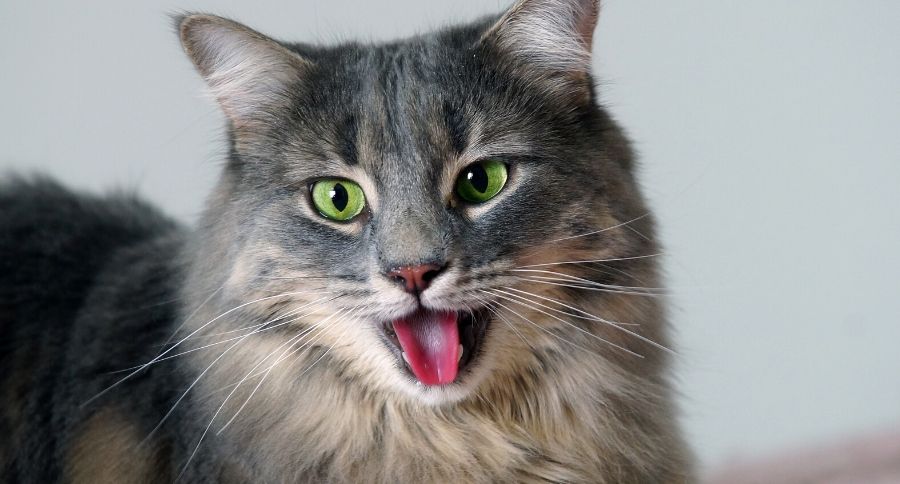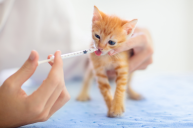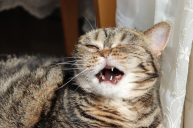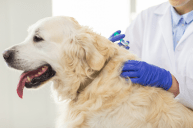Heavy or rapid breathing can be very serious in cats. Yet, heavy breathing in your cat doesn't automatically mean respiratory distress but there are three types of heavy breathing categories in cats all pet parents should be aware of. Your cat's heavy breathing can be broken down into three categories - dyspnea, tachypnea, and panting. We break this down below for readers.
As a caretaker and pet parent, you need to understand what the normal resting respiratory rate is for cats and what 'rapid' breathing looks like for your feline buddy. If anything is unusual or heavy breathing is ongoing and persists you need to get your cat to a vet. (This also goes for dogs). Heavy breathing can be an emergency!
Normal respiratory rate in cats
A normal resting respiratory rate is easy to monitor and you'll want a baseline when your cat is calm. Follow these very easy instructions.
Healthy cats take fewer than 20 breaths per minute while resting, but a number higher than 30 is a reason for concern.
3 types of heavy breathing in cats
We're All About Cats explains that heavy breathing in cats is categorized in three ways.
1. Labored breathing
Cats may find it hard to breathe. Their breathing may be noisy and they may be restless and have trouble sleeping.
2. Rapid and shallow breathing
You may see a bluish tint to the gums and mucous membranes is a sign of inadequate oxygenation. They usually don't breathe through their mouths.
3. Panting
Panting may be a sign of heart disease. Cats will also pant when they overheated.
What can cause rapid breathing? What should you watch for?
You need to watch for labored breathing, loss of appetite, hiding, and coughing.
PetMD.com tells us that the three main causes include heart failure.
"Fluid in the chest or hydrothorax refers to the accumulation of fluid in the space between the lungs and ribs (pleural cavity). Common causes for hydrothorax include Feline Infectious Peritonitis (FIP), ruptured thoracic duct, and congestive heart failure due to cardiomyopathy."
What should you do?
Is your cat breathing this way after lounging around all day? You should make sure to make a vet appointment and calmly move your cat into their carrier as you really don't want to stress them out.
Breathing difficulties can be serious and anytime you have a 'heavy breathing cat' you need to be vigilant and get to the vet. Make sure you know what your cat's normal resting respiratory rate is so you have a baseline.
Noisy breathing, open mouth breathing, any trouble breathing, breathing heavy, wheezing, nasal discharge, and fast breathing, can all be factors of disease and a sign your cat may need to get to the vet and is having a medical emergency.
Always look for other signs like an increase in body temperature, sneezing, and even a chance they got into some foreign objects like string. Journal all of these notes for your vet so they can assess what's happening with diagnostics like chest X-rays, an echocardiogram and a blood count. Your vet will need to rule out diseases and any underlying causes.
Have you ever needed to rush your cat to the vet for rapid breathing? Please leave us a comment below.
WATCH: Russian Blues Are Sweet Loyal Talkers




